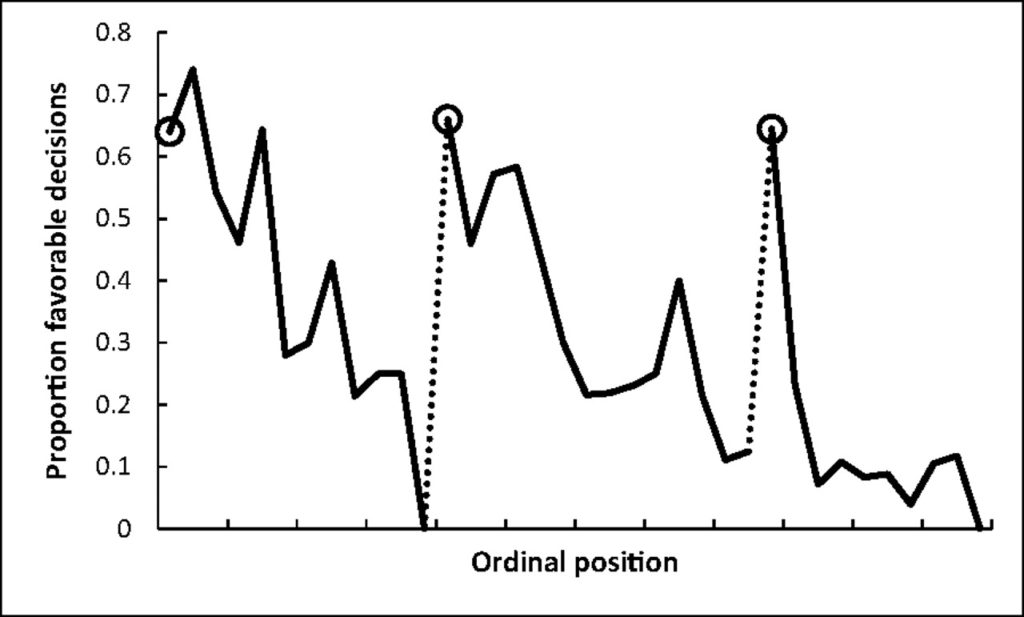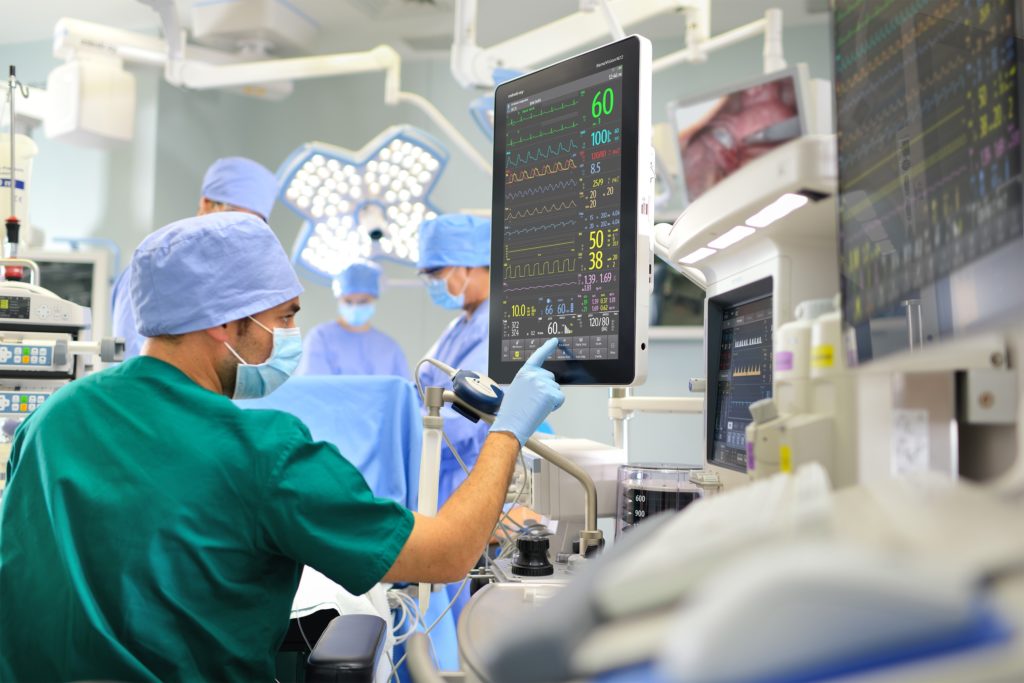The saying, “Justice depends on what the judges ate for breakfast,” may have some truth to it. A study examined Israel judges who presided over parole hearings. It was observed that judges gave more merciful decisions at the start of the day and after lunch. Read on to see what this means!
The Study
For this social experiment, more than 1,000 rulings were studied. The authors observed that the judges granted parole 65% of the time to the first criminal. The probability decreased after that. After the lunch break, the chances increased to 65% once again and then declined as the day progressed.
Jonathan Levav, who co-authored the paper said: “You are anywhere between two and six times as likely to be released if you’re one of the first three prisoners considered versus the last three prisoners considered.”
The only other things that had an effect on the judicial proceedings were the number of times a prisoner had been to jail and whether there was a rehabilitation program. Variables such as the severity of the prisoner’s crime, prison time, sex and ethnicity tended to not exert an effect on the rulings, according to the study.

The Reasons
The authors say that making successive decisions draws from our limited mental faculty. When we get tired, we look for shortcuts like following the status quo. In this case – denying parole. This is based on the concept of Ego Depletion (not the colloquial ego). The hypothesis is that willpower and self-control are limited resources that diminish with use. However, they can effectively be replenished by consuming sugar (judges having lunch).
Levav said: “I don’t measure the judge’s mood. I don’t measure the judge’s glucose level. It’s just a very consistent empirical regularity. It’s a quite robust effect, and it really doesn’t matter how you cut the data you get to reproduce it.”

The Implications
The studies suggest that the findings are applicable in a variety of scenarios as well. Levav said: The bias could “happen anywhere where there are sequential decision-making and some kind of status quo or default that allows people to simplify those decisions”.
For example, an inspection officer might do a sloppy job at the end of the day. A doctor in a general hospital may not diagnose a patient’s condition properly before the lunch break. Job interviewers may more likely select early candidates.

A Caveat
A subsequent paper suggests that the ordering of cases was not random. A prisoner without lawyers representing him/her was given slots just before the breaks. Also, prisoners without representation are usually not given parole. The original authors might have confused correlation with causation.
Further Reading:


